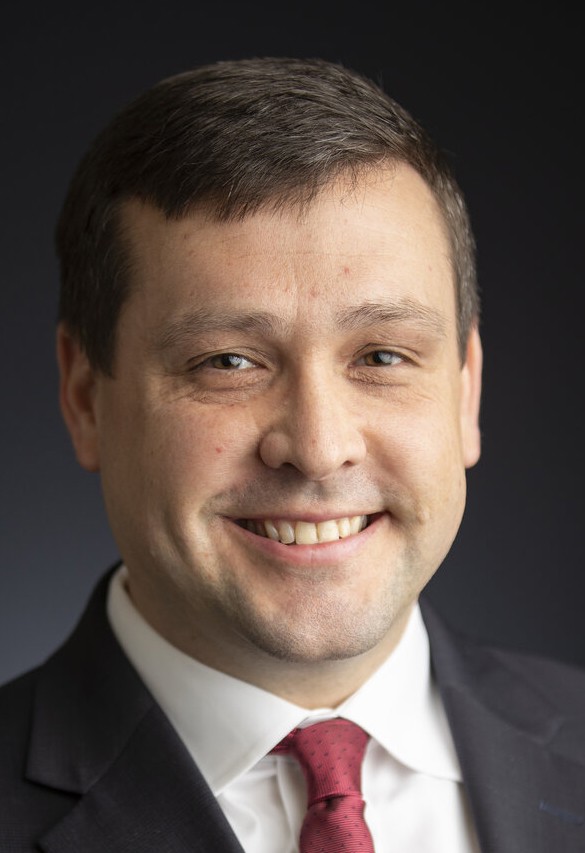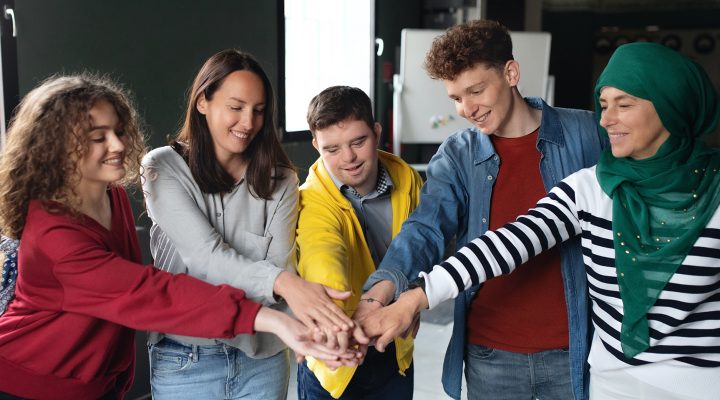Religion remains one of the most powerful forces on the planet, sometimes for good and sometimes for evil. Religion can summon us to our highest ideals, treating each and every person with all reverence due their divine origin. Of course, religion also can provide sanction for our most demonic impulses that oppress the other in the name of the divine.
Religion can compel us all onto a holy pilgrimage into truth, humbling us with each step. Or religion can calcify our doctrines, inflating our pride as if we — and those in our tribe — somehow own the truth.

Preston Clegg
Religion can make our divisions ultimate and, therefore, irreconcilable. Or it can be the loving impetus to cross divisions in the name of peace and the common good.
But whichever way religion is used, we would be wise to recognize its power and how both expressions are alive and active in our culture today.
Antisemitism and anti-Muslim sentiment are on the rise in the U.S. Violence in places of worship is on the rise. Hate crimes are on the rise (at least in states that have hate crime legislation that permits one to measure that sort of activity). Those in minority religions in this country are facing significant perils, dangers, toils and snares.
“This premise inevitably will lead to monologue disguised as dialogue.”
Of course, the greatest antidote to this violence and division is interfaith relationships. If one begins these relationships on the premise of “my religion is correct and all others are wrong,” then I’m not sure true dialogue can really take place because one begins in a posture of condescension. This premise inevitably will lead to monologue disguised as dialogue.
But if we begin from a posture of humility that says, “God is an awfully big God and we are all on our journeys to discover the truth of that God,” then we are open to listen, consider, pray and reflect.
All the religions of the world are present in Central Arkansas, although many exist in small numbers. Little Rock is home to vibrant Jewish, Muslim, Sikh, Buddhist and Christian communities. Many of the leaders of these communities know each other as personal friends and our faith communities have partnered in a variety of ways throughout the years. We do not seek to convert each other to our religion; we all seek to be converted more and more into the wonder and mystery of the divine.
My Jewish and Muslim friends undoubtedly have made me a better follower of Jesus by challenging me to dig into the deepest wells of my faith and to cling to that which lies at the solid core of my tradition. They have helped me see old ideas in new ways, and they have provided me with keen insight into the heart of God.
Most recently, the church I serve as pastor — Second Baptist Church in downtown Little Rock — and other Christian churches joined with the Muslim community of Little Rock to help resettle Afghan refugees who were fleeing for their lives. These families — many of them quite large with numerous young children — faced arduous language difficulties, immense cultural chasms and immeasurable cognitive dissonance, all the while recovering from the trauma of their departures.
“Resettling these families would have been impossible apart from interfaith relationships of love, trust and mutual respect.”
Resettling these families would have been impossible apart from interfaith relationships of love, trust and mutual respect. Deacons in my Baptist church drove these refugees to worship in the mosque on Fridays. Doctors served as translators. School counselors helped children navigate life in public schools.
So long as the world religions see each other as competitors at best and enemies at worst, the world will struggle to know peace. But when the world religions see each other as neighbors to be treasured, miraculous good is possible. One expression of faith creates refugees; the other resettles them.
Preston Clegg serves as pastor of Second Baptist Church in Little Rock, Ark. He has served churches in Arkansas, Texas and Oklahoma. He earned a bachelor’s degree in Christian ministry from Williams Baptist College in Walnut Ridge, Ark., then both master of divinity and doctor of ministry degrees from George W. Truett Theological Seminary at Baylor University.
Related articles:
Will you join our church in declaring that this is a time to break silence?
Six lessons learned on my interfaith journey | Opinion by Rob Sellers


